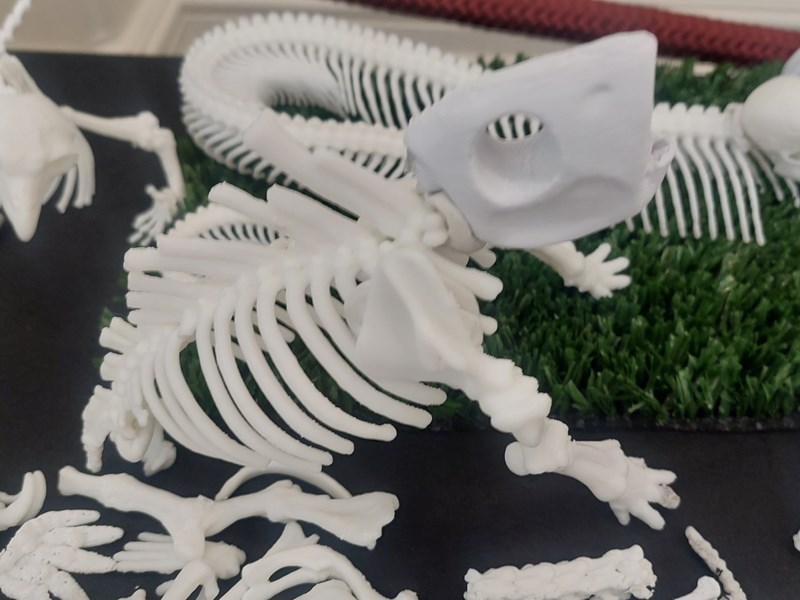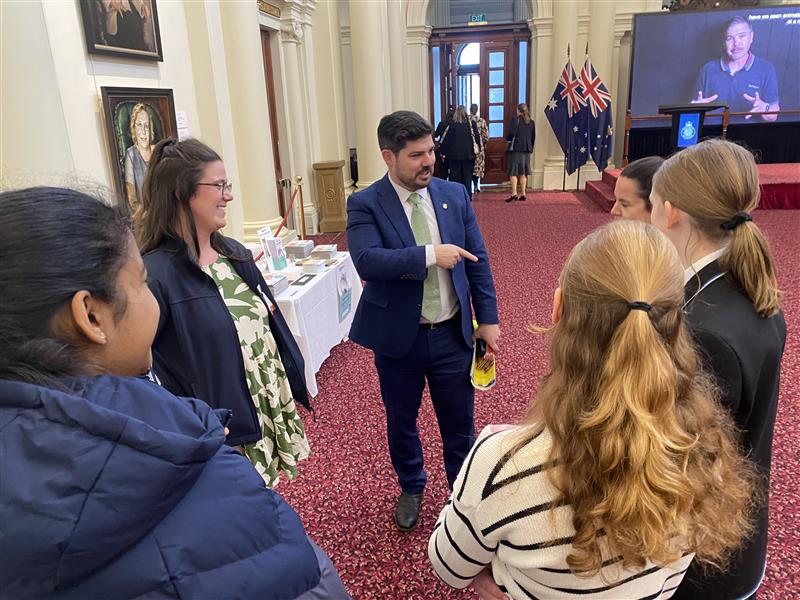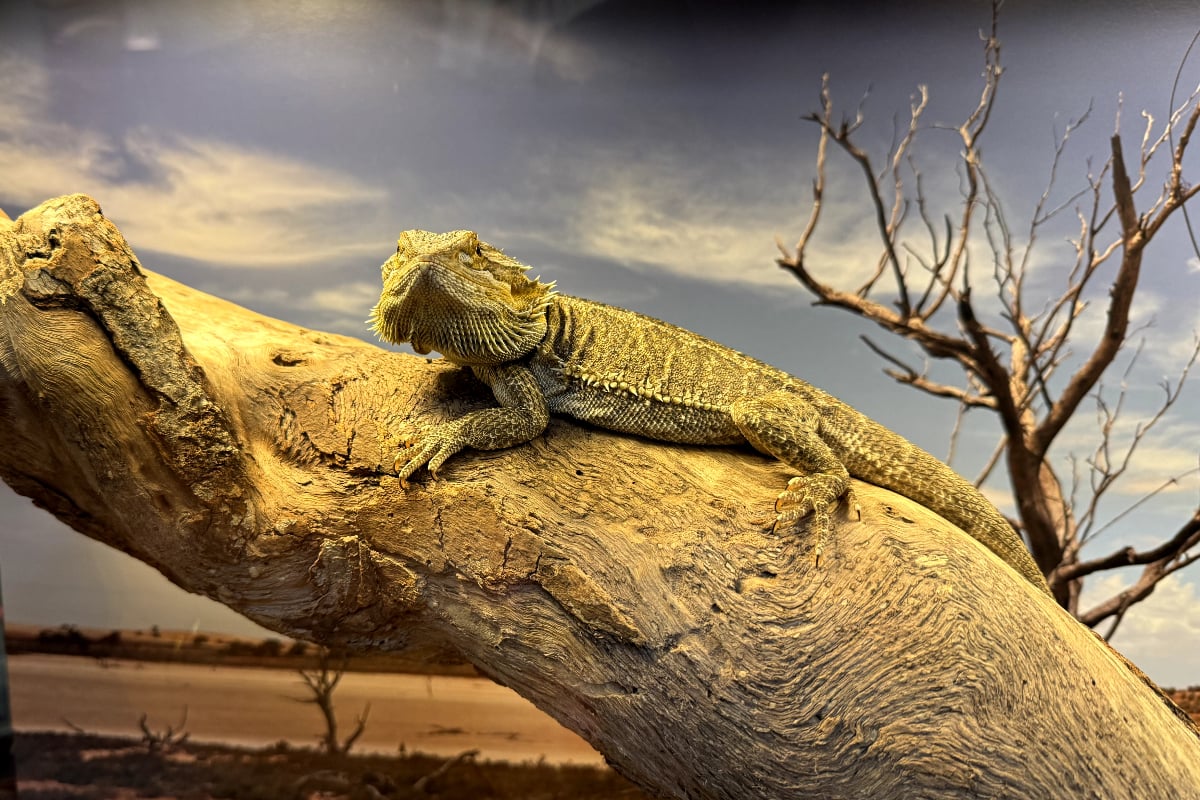In the pursuit of species survival: National Science Week 2024
20 August 2024

Believe it or not, science and citizenship have a great deal in common. Whilst science (in a broad sense) focuses on the pursuit and application of knowledge of the natural and physical world, civics and citizenship considers peoples involvement in particular groups and their rights and responsibilities within these.
To celebrate the connection between science and civics and citizenship, Parliament of Victoria held a sustainable species exhibition as part of National Science Week, between Monday 12 August and Friday 16. Exhibitors included Science Gallery Melbourne, Museum Victoria, Zoos Victoria and Parliament of Victoria. The exhibition explored what we as citizens and scientists can learn from the past, do in our present, and think about in the future to ensure species not just survive, but thrive.
Science Gallery Melbourne
Species de-extinction and innovation: What does the future hold for species survival?
The Thylacine de-extinction project and ‘Chickenosaurus’ explore the possibilities of advancements in scientific technology that are bringing us closer to making Jurassic Park a reality. From bringing species back to creating creatures never seen before, it raises the question: Just because we can or could, does it mean we should?
Science Gallery Melbourne, Australian Space Agency and Parliament of Victoria
Mission Control: What would it take to survive on Mars?
Mission Control is an educational program developed by Science Gallery Melbourne in collaboration with Parliament of Victoria and the Australian Space Agency. The program asks students to consider which 10 out of 12 industries recommended would be essential to take to Mars, and what the consequences of not taking all 12 might be.
Melbourne Zoo
Small actions ... big impact: What can I do to help species survive and thrive?
Campaigns like Safe cat, safe wildlife and They’re calling on you demonstrate how small actions such as caring for our feline friends or recycling old phones can have a big impact on the world around us. These seemingly small acts can help protect endangered species, from local wildlife to the Gorillas of the Eastern Lowlands of Africa.

Photo: Anthony Cianflone MP speaks to students at the National Science Week event
Museums Victoria
Saving our native species: Past, present and future
How do museums use innovative science to save species, now and forever?
You can’t save a species you don’t know exists. Museums Victoria Research Institute documents species from past to present – cataloguing Victoria’s biodiversity. Prehistoric species, like Koolasuchus demonstrate how extinction and climate have shaped Victoria for eons, while critically endangered species like Plains Wanderers, the Victorian Grassland Earless Dragons and Growling Grass Frogs are part of our world-leading conservation science, guiding wildlife management to ensure species survival – now and in the future.
To hear more from the organisations that were involved in Science Week, read our news article Rare, threatened and just plain weird; Science Week at Parliament.

Photo: Bearded Dragon as part of the Museums Victoria National Science Week exhibition
Making connections to the classroom
If you’re looking for some learning connections between science and civics and citizenship, you might like to consider some of the following similarities between the two subject areas.
|
|
Science | Civics and citizenship |
|
Inquiry and learning: Engaging continuous process of learning and inquiry. |
Conduct inquiries through research and experimentation. | Conduct inquiries leading to understanding civic responsibilities and engagement with contemporary issues. |
|
Critical thinking: Engaging in critical thinking and analysis. |
Critically evaluate data and hypotheses. | Analyse information and perspectives to make informed decisions and contribute to society. |
|
Responsibility: Emphasising responsibility. |
Conduct ethical research and communicate findings accurately. | Participate in civic duties and contribute to the well-being of their community. |
|
Impact on society: Having a significant impact on society. |
Scientific discoveries can drive technological and medical advancements. | Active citizenship can influence policy, social justice, and community development. |
|
Collaboration: Working with others. |
Often work in teams and across disciplines. | Work with others to address common goals and challenges. |
|
Ethics and values: Being guided by ethical considerations and values. |
Governed by ethical standards. | Uphold values like fairness, justice and respect for others. |
Our Action and Influence teacher guide explores the different actions people can take to create change and includes a framework to help students identify how each action works and evaluate their effectiveness.